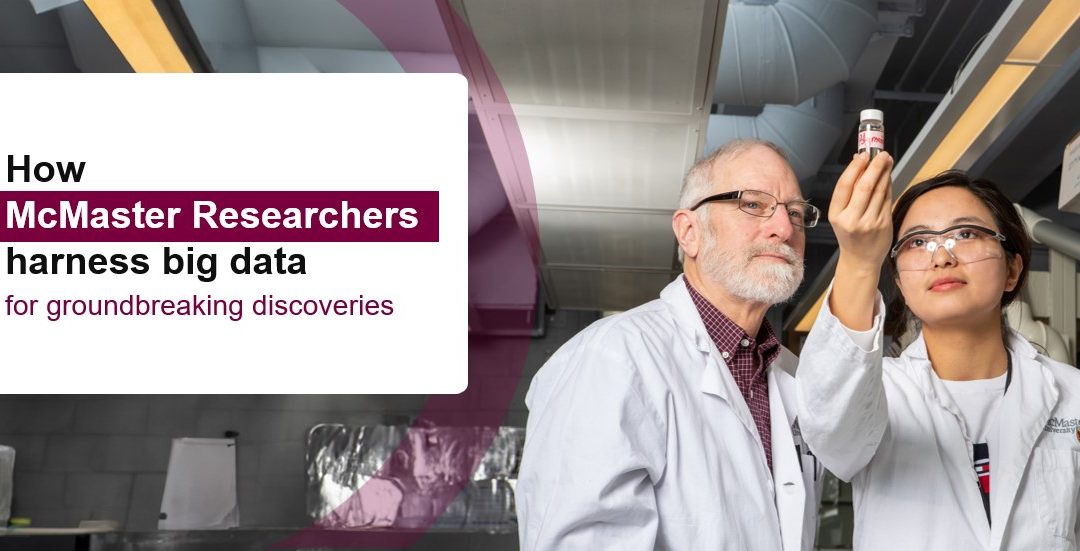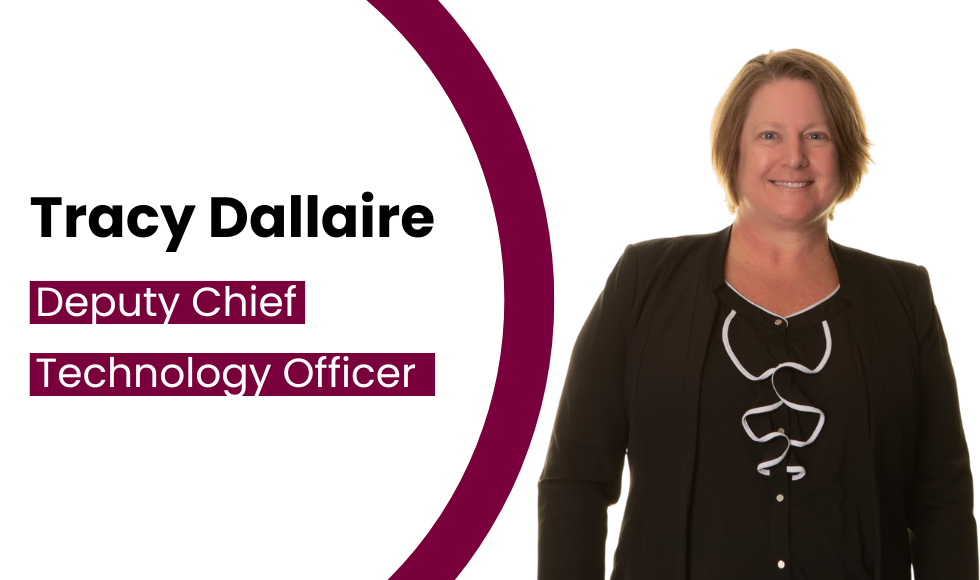Unlocking Possibilities for McMaster Research

It’s no secret: New technologies create massive amounts of data at unprecedented rates. This explosion of both volume and speed of data creation profoundly impacts the ability of researchers to create and distribute critical, breakthrough research.
Research projects at McMaster University cover a broad spectrum of areas ranging from star clusters to AI to carbon flux modeling and everything in between. Yet they all share one common element: They require massive amounts of data capacity to undertake. These massive troves of data are untenable without a vast network of combined computing power and resources. This is precisely why the Digital Research Alliance of Canada (DRAC) was created. Funded by the Government of Canada, DRAC is a non-profit organization that aims to advance and champion Canadian researchers on the world stage by funding and integrating a digital research infrastructure (DRI).
The DRI supports researchers across Canada, providing them with a variety of digital support services, including advanced research computing (ARC), research data management and research software. More than 20,000 researchers, including more than 5,483 faculty based at Canadian institutions, have access to the ARC platform.
Every year, researchers apply to receive available data capacity allocation on the national ARC platform. These massive allocations of data space allow researchers to transform their research projects from idea to reality.
This year, DRAC awarded capacity to 14 McMaster researchers: Paul Ayers, Ben Evans, Alemu Gonsamo Gosa (below), Hamidreza Mahyar (below), Giuseppe Melacini, Nicola Nicolici, Bartosz Protas, Ralph Pudritz, Oleg Rubel, Alison Sills (below), Erik Sorensen, Stephen Tullis, Rodrigo Vargas-Hernandez, and Li Xi.
Projects DRAC Will Bring to Life at McMaster
The following are three of the 14 projects researchers at McMaster can now undertake thanks to DRAC resource allocation:
Star Cluster Formation by Dr. Alison Sills, Department of Physics and Astronomy

Allison Sills’ research project brings together different pieces of the star cluster formation and evolution puzzle into one simulation framework that will help scientists better understand the complex processes that determine what kinds of clusters form, when and where they form, and which clusters will survive billions of years of interaction with the galaxy.
“Integrating various astronomical phenomena into one simulation framework requires massive computational resources,” explains Sills. “With DRAC’s support, we can now simulate these processes on a galactic scale, opening new frontiers in our understanding of the universe.”
Improving AI with GNNs by Dr. Hamidreza Mahyar, W Booth School of Engineering Practice and Technology

This research project aims to improve artificial intelligence by using Graph Neural Networks (GNNs) to better handle complex, interconnected data.
His project aims to improve how machines interpret and interact with complex data, enabling AI to accurately interpret not just texts or images, but the underlying relationships within them – much like how humans understand the world.
“GNNs enhance our ability to process complex, interconnected data – and they can significantly improve AI applications to offer detailed visual descriptions of data, aiding visually impaired users,” says Mahyar. “DRAC’s computational power will be an essential resource.”
The national carbon flux estimation by Dr. Alemu Gonsamo, Faculty of Science

This project leverages cutting-edge satellite technology and AI to monitor carbon flux in forests across Canada, tracking how much carbon is emitted from forest disturbances like wildfires, and how much carbon is sequestered by tree growth in the same year.
The carbon flux estimation system will be used in forest carbon budget reporting to the United Nations Framework Convention on Climate Change and will assist in formulating forest management options in Canada’s effort to combat climate change.
“This vital data will assist in managing forest resources and addressing climate change impacts, made possible by DRAC’s extensive digital resources,” says Gonsamo.
Driving innovative, cutting-edge research
The funded projects exemplify McMaster’s commitment to harnessing big data for scientific discovery and societal benefit, ensuring that McMaster researchers can continue to lead initiatives that not only advance knowledge and innovation across the disciplines, but also promote and enhance global well-being
Resources for Researchers
Are you a researcher who would like to explore funding opportunities for your project?
Click here to learn more about accessing resources and opening your complimentary computing space.
Are you a researcher that’s new to the world of advanced computing? The Compute Ontario Summer School is an annual online training event covering a variety of introductory and advanced topics in advanced research computing (ARC), high-performance computing (HPC), and research data management (RDM). Learn more about the training here.
News CategoryRelated News
News Listing

Innovation Meets Leadership: McMaster and Cisco Spotlight Women’s Health and Technology
News Category
November 6, 2025

October 1, 2025

